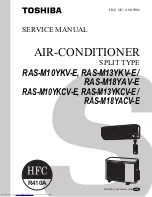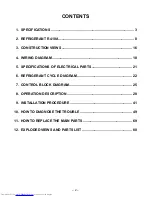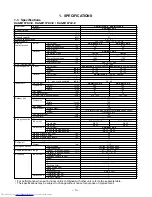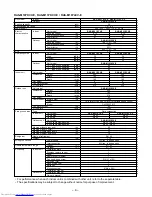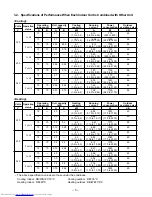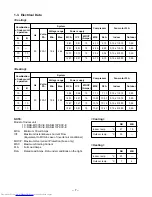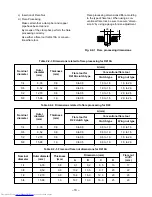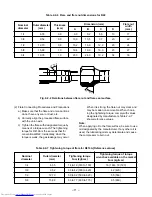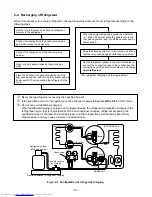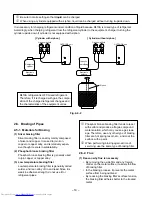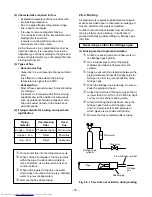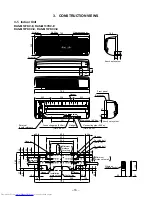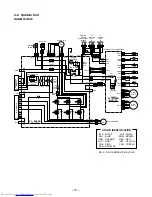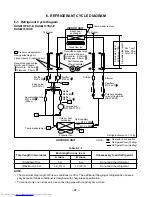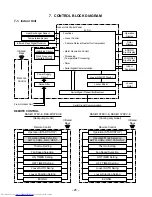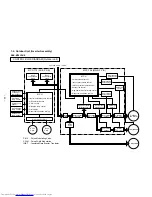
– 11 –
(2) Flare Connecting Procedures and Precautions
a) Make sure that the flare and union portions
do not have any scar or dust, etc.
b) Correctly align the processed flare surface
with the union axis.
c) Tighten the flare with designated torque by
means of a torque wrench. The tightening
torque for R410A is the same as that for
conventional R22. Incidentally, when the
torque is weak, the gas leakage may occur.
When it is strong, the flare nut may crack and
may be made non-removable. When choos-
ing the tightening torque, comply with values
designated by manufacturers. Table 2-2-7
shows reference values.
Note:
When applying oil to the flare surface, be sure to use
oil designated by the manufacturer. If any other oil is
used, the lubricating oils may deteriorate and cause
the compressor to burn out.
Table 2-2-7 Tightening torque of flare for R410A [Reference values]
Nominal
Outer diameter
Tightening torque
Tightening torque of torque
wrenches available on the market
diameter
(mm)
N•m (kgf•cm)
N•m (kgf•cm)
1/4
6,35
14 to 18 (140 to 180)
16 (160), 18 (180)
3/8
9,52
33 to 42 (330 to 420)
42 (420)
1/2
12,70
50 to 62 (500 to 620)
55 (550)
5/8
15,88
63 to 77 (630 to 770)
65 (650)
Fig. 2-2-2 Relations between flare nut and flare seal surface
Table 2-2-6 Flare and flare nut dimensions for R22
Nominal
Outer diameter
Thickness
diameter
(mm)
(mm)
1/4
6,35
0,8
3/8
9,52
0,8
1/2
12,70
0,8
5/8
15,88
1,0
3/4
19,05
1,0
Dimension (mm)
A
B
C
D
9,0
9,2
6,5
13
17
13,0
13,5
9,7
20
22
16,2
16,0
12,9
20
24
19,4
19,0
16,0
23
27
23,3
24,0
19,2
34
36
43˚
~
45˚
45˚
~
46˚
B
A
C
D
Flare nut
width
(mm)

